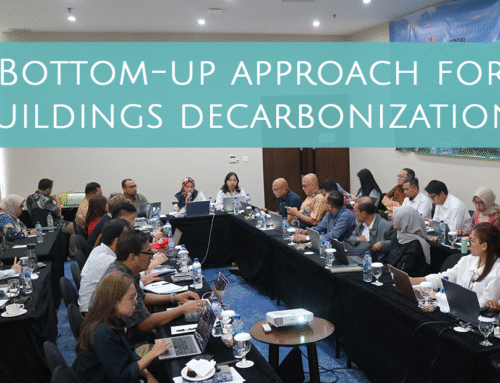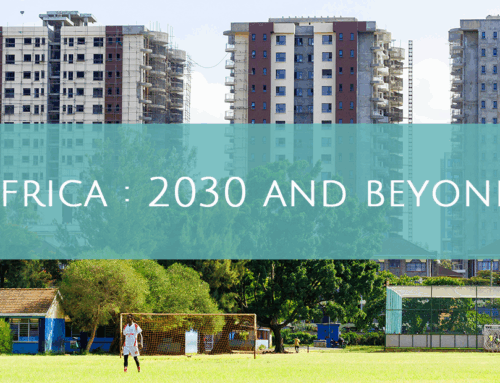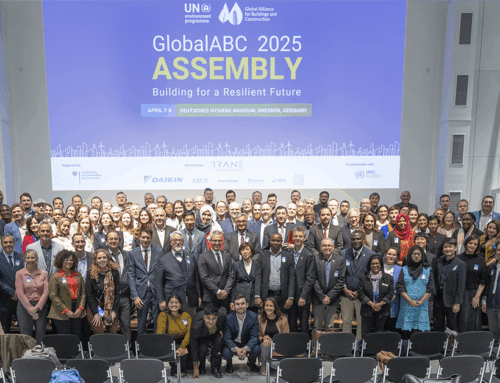Building on expert panels from COP28, this series aims to mainstream the solutions-driven conversation for actionable climate strategies
The global climate crisis presents unprecedented challenges, but it also offers remarkable opportunities for transformative change. How do we turn these opportunities into actionable solutions? What works and what needs to change?
We spoke to experts for their insights on what drives effective climate action in general, and the buildings sector in particular. While every expert brought their unique perspectives, a key theme was present in all the conversations; a collaborative and inclusive approach that brings together every sector – public, private, NGOs and local communities. Over the next few weeks we will bring together these insights in the Expert Series: Driving Climate Action in the Building Sector.

Building Sustainable and Inclusive Cities
Cities are the heartbeat of economic and social life, but rapid urbanization and socio-economic disparities present complex sustainability challenges. How can we ensure that cities are livable for the people that call them home? Listen to the voice of the community, says Eka Permanasari, Associate Professor, Monash University, Indonesia and GBPN expert.
“To build cities that last, we must design them with, not just for, their inhabitants,” Professor Permanasari said.
Her work in Jakarta, where she led a participatory design initiative to create community centers, demonstrates the power of collaboration between local stakeholders and urban planners. By engaging residents in every stage—from planning to execution—these centers became vibrant hubs of activity, fostering a sense of ownership and responsibility.
Implementing effective climate policies
Bishal Thapa, Senior Director, India Program at CLASP, stresses that while there is always room for more climate policies, the critical issue often lies in their implementation. In regions like the Global South, where climate impacts are felt most acutely, there is a critical need to ensure that policies are actionable and context-specific.
Mr Thapa’s work focuses on providing decision-makers with the evidence and tools needed to implement policies that balance economic development with environmental sustainability. “It’s about understanding the constraints faced by policymakers and helping them make informed decisions,” he explains. His expertise in energy efficiency and sustainability highlights the importance of aligning technology with market realities to create affordable, scalable solutions.


Circular systems – Beyond recycling and the power of Collaboration
The circular economy offers a promising framework for sustainability, but as John Holm, Senior Vice President of Pyxera Global explains, we must move beyond superficial efforts like recycling. True circularity requires systems that regenerate and restore natural resources.
Mr Holm’s work focuses on creating systems that prioritize reducing, reusing, and repurposing materials, with recycling as the last resort. “We need policies that incentivize businesses to adopt circular practices from the outset,” John notes. Networks are vital for creating transformative change, but they must be built on shared goals and purpose. Mr Holm stresses that successful networks are driven by the people within them, ensuring accountability and mutual support. As Mr Holm stresses, “Collaboration, not competition, is the way forward.”
Private Sector Leadership in Decarbonization
The private sector is instrumental in the global push to reduce carbon emissions, and leaders like Dr. Sunita Purushottam, GBPN Board Chair and Sustainability Lead at Mahindra Lifespace Developers Limited, are paving the way. Under Dr Purushottam’s leadership, Mahindra has made a commitment to achieve a 100% environmentally sustainable portfolio, with ambitious targets to achieve net-zero buildings by 2030.
Dr. Purushottam emphasizes, “This is an ongoing journey of increasing commitment because it’s the need of the hour.” While regulatory pressures are propelling some of these changes, she underscores the need for businesses to go beyond mere compliance and actively integrate sustainability as a fundamental value. Her work in decarbonizing the built environment demonstrates that the private sector can lead by example, creating a domino effect across industries and value chains.

Transformative potential of a collaborative approach
No single sector can drive transformative climate action on its own. Whether it’s co-designing cities with residents, ensuring climate policies are both actionable and equitable, or integrating circular systems at scale, the power of collective action is undeniable. Businesses, policymakers, and local communities must collaborate to develop and implement innovative solutions that address climate challenges and ensure that sustainability’s benefits are shared equitably. This shared responsibility is the best hope for a just transition to climate resilience.
Share This Story, Choose Your Platform!
Stay in touch with how we’re transforming the buildings sector
GBPN runs innovative building policy reform programs in key regions around the world that aim to tackle the climate emergency by decarbonising the buildings sector. Stay up to date with our newsletter.
Stay in touch with how we’re transforming the buildings sector
GBPN runs innovative building policy reform programs in key regions around the world that aim to tackle the climate emergency by decarbonising the buildings sector. Stay up to date with our newsletter.







